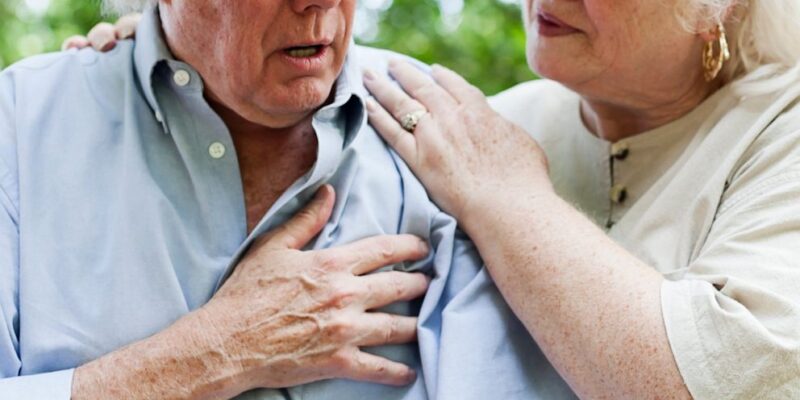Heart attacks, a leading cause of death globally, often don’t strike without warning. Understanding the early signs can be lifesaving. Here are six warning signs of a heart attack that may appear a month before the event.
Fatigue
One of the main symptoms that alarm experts is unusual fatigue. It’s not about feeling tired after a long day but an overwhelming fatigue that isn’t justified by your activities.
Why does it happen?
Your heart needs to work harder when your arteries begin to narrow. This can result in a drop in blood flow, making you feel more tired than usual even after a full night’s sleep.
Shortness of Breath
Another crucial warning sign is shortness of breath. If you find yourself gasping for air while doing routine tasks, it could be a precursor to a heart attack.
How is it related?
The lungs and heart work closely. If the heart receives less blood, the lungs will get less oxygen. This tandem dysfunction leads to shortness of breath.
Weakness
A weakening of the muscles is a sign that there’s not enough blood flow going through. This occurs because your arteries are narrowing or becoming blocked.
Recognizing weakness
A sudden feeling of weakness or heaviness in the limbs can indicate reduced blood flow and should not be ignored.
Dizziness and Cold Sweats
Feeling dizzy and breaking into a cold sweat without any apparent reason is a clear sign that something isn’t right with your body. It’s a direct result of the blood flow not reaching the brain in the required amounts.
How to distinguish?
If these symptoms are accompanied by nausea, it’s crucial to consult a doctor immediately.
Chest Pain
This is one of the most recognized signs of a heart issue. A nagging pain in the chest, which may spread to the arm, neck, or jaw, can indicate a looming heart attack.
Types of pain
The pain can vary, from pinching, burning, or even a minor ache. It’s essential to identify any unusual sensations and seek immediate medical attention.
Disturbed Sleep Patterns
Disrupted sleep, whether it’s insomnia or waking up frequently at night, can be linked to heart risks. Anxiety, the need to urinate often, or leg cramps can also be associated signs.
The underlying cause
These symptoms might be due to the body releasing more stress hormones which, in turn, affects sleep patterns and may indicate poor heart health.
In conclusion, recognizing these early signs can be crucial in preventing a full-blown heart attack. Regular check-ups, a balanced diet, and a healthy lifestyle can further mitigate the risks. It’s always recommended to consult with healthcare professionals if you experience any of these signs.













Comments